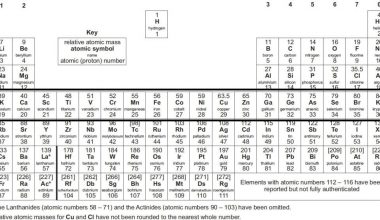The International General Certificate of Secondary Education (IGCSE) grading system is a way to measure and evaluate student achievement in the course.
It’s a system that evaluates and celebrates students’ diverse talents and abilities. This is done using a grading system that assesses students and their academic skills.
The system employs a scale of A* to G, with A* denoting the highest level of achievement and G indicating the minimum passing grade.
This grading system reflects the comprehensive nature of the evaluation process, accommodating a wide array of student performance levels.
Each subject within the IGCSE curriculum is evaluated separately, allowing students to shine in areas where their aptitude and dedication converge.
In this comprehensive guide, we will explore the nuances of the IGCSE grading system and clarify what constitutes a good, low, or outstanding score.
We will also discuss in full detail the IGCSE Grading System and how it is determined.
Table of contents
About IGCSE
The IGCSE curriculum, administered by the Cambridge Assessment International Education Board, has carved a niche as a rigorous and balanced educational program.
It fosters the holistic development of students, nurturing their critical thinking, research skills, and subject-specific expertise.
The IGCSE curriculum offers diverse subjects designed to cater to a broad spectrum of learners. This allows students to tailor their educational journey to their strengths and passions.
From humanities to sciences, languages to arts, the curriculum’s versatility empowers students to chart their academic path with precision.
What Is the IGCSE Grading System?
The International General Certificate of Secondary Education (IGCSE) grading system is a way to measure and evaluate student achievement in the course.
The IGCSE grading scale uses a letter grade system, with A* being the highest grade and G being the lowest. Students who don’t meet the requirements for a G grade are also awarded a grade U (ungraded).
Each IGCSE subject is evaluated using a mix of internal and external assessments, including written tests, practical exams, and assignments.
The company responsible for the IGCSE program, Cambridge Assessment International Education (CAIE), sets and grades the external exams.
The IGCSE grading scheme is intended to offer an accurate and dependable indicator of student achievement across many topics and nations. It enables colleges, parents, and students to comprehend and evaluate IGCSE pupils’ performance on a global scale.
Universities and employers worldwide acknowledge the IGCSE grading system as a reliable indicator of a student’s potential and academic skills.
How Are IGCSE Grades Determined?
The results of a student’s performance on internal and external exams in various topics are used to calculate IGCSE grades.
IGCSE grades are assigned on a scale from A* to G, with A* being the best grade and G representing the lowest. Students who don’t fulfill the requirements for a G grade also receive an ungraded U mark.
Written exams and coursework are both used in the IGCSE evaluation process. Projects, assignments, and practical work are typically completed as part of the school curriculum.
On the other hand, written exams are given after the course and are set and graded by Cambridge Assessment International Education (CAIE), the company in charge of IGCSE.
IGCSE grades are calculated by first converting the student’s raw marks in each subject into uniform values that account for the difficulty of each paper.
Then, these uniform marks are transformed into grades using a set of grade boundaries that CAIE establishes each year.
The grade limits are determined by considering each grade’s expected level of achievement, the student’s overall performance on the exam, and the paper’s difficulty.
Related Post: Do AP Test Scores Affect Your Acceptance Chance in 2024?
How to Calculate IGCSE Marks
Calculating IGCSE marks is a meticulous endeavor that blends the art of assessment with the science of mathematics.
To arrive at a final grade, the raw marks obtained by the student are harmonized with uniform grade thresholds determined by subject experts and educators.
This amalgamation of raw scores and threshold values ensures a fair and standardized assessment, free from bias or prejudice.
As students eagerly await their results, this process stands as a testament to the integrity and objectivity of the IGCSE evaluation system.
What is a Good Grade for IGCSE?
Pursuing a good grade in the IGCSE examinations reflects academic proficiency, a commendable work ethic, and dedication.
A good grade is akin to a multifaceted gem, capturing the essence of a student’s intellectual prowess, subject mastery, and analytical insight.
Generally speaking, an A* or A grade signifies exceptional achievement, reflecting a deep understanding of the subject matter and a commitment to academic excellence.
However, it’s important to remember that a “good” grade is relative, varying based on individual aspirations, career ambitions, and personal growth trajectories.
What is the Lowest IGCSE Score?
As much as the IGCSE system celebrates academic accomplishments, it also acknowledges that education is a journey of growth and development. The lowest IGCSE score, a G grade, denotes the minimum level of achievement required to pass the examination.
While it might not carry the same luster as higher grades, it signifies an important milestone in a student’s educational journey. It’s a testament to perseverance, a stepping stone to more excellent knowledge and understanding.
Related Post: A-levels 2024: Everything You Need to Know
What is the Best IGCSE Score?
Just as the North Star guides travelers through uncharted territories, the A* grade in the IGCSE grading system is the pinnacle of achievement. It encapsulates excellence, brilliance, and an unwavering commitment to studies.
Achieving the best IGCSE score is not merely a testament to academic prowess; it reflects the student’s unwavering dedication, sleepless nights of studying, and a passion for learning that transcends traditional boundaries.
It recognizes the student’s ability to synthesize complex concepts, critically analyze them, and emerge as a true scholar.
Can I Use IGCSE to Get into University?
Absolutely! The IGCSE grading system is pivotal in determining a student’s worldwide eligibility for higher education institutions.
While each university has its admission criteria, IGCSE grades are a fundamental parameter that showcases an applicant’s academic proficiency and potential.
Admissions boards often use IGCSE results as an initial screening tool to assess a candidate’s suitability for a particular program.
Hence, securing impressive IGCSE grades enhances your chances of university acceptance and demonstrates your commitment to academic excellence.
Related Post: Quizlet Review – How to use it and Best Practices
How can IGCSE Grades affect admission to universities?
IGCSE grades, frequently cited indicators of a student’s academic aptitude and potential, can considerably influence university admissions.
For consideration for admission to their programs, many institutions set minimum IGCSE grade requirements that must be met.
For instance, to be considered for admission to prestigious UK colleges like Oxford and Cambridge, pupils often need to earn A* scores in pertinent IGCSE topics.
Depending on the program and degree of admissions competition, some universities may require a minimum grade of B or C in a particular IGCSE topic.
Additionally, IGCSE scores can establish a student’s eligibility for scholarships and other types of financial aid that colleges offer. Outstanding IGCSE students may qualify for merit-based scholarships or other financial assistance to support their academic aspirations.
How Many Levels Are There in IGCSE?
The IGCSE curriculum is structured around various subjects, ensuring a holistic educational experience. This curriculum is typically divided into two levels: the Core Curriculum and the Extended Curriculum.
The Core Curriculum covers essential concepts within each subject, while the Extended Curriculum delves deeper into advanced topics.
This bifurcation caters to students with varying academic interests and aspirations, allowing them to tailor their studies to their strengths and preferences.
Which Country Accepts IGCSE?
One remarkable feature of IGCSE is its global recognition. Universities in numerous countries acknowledge and accept IGCSE grades as a valid entry requirement.
IGCSE has carved a niche as an internationally acknowledged qualification from the United Kingdom to Australia, the United States to Singapore.
This recognition underlines the standardized nature of the curriculum and its alignment with global educational standards.
Related Post: Why Many Fail GCSE Exams in 2024
What Are the Grade Boundaries for Edexcel?
The minimum score needed to pass a test or other assessment administered by the Edexcel examination board is called the “Edexcel grade boundary.” One of the main exam bodies in the UK, Edexcel offers a variety of credentials, such as GCSEs, A-levels, and vocational credentials.
A group of subject specialists decides the grade limits for Edexcel tests based on several variables, including the students’ overall exam performance, the exam’s degree of difficulty, and the level of success typically expected for each grade.
These grade boundaries are established before the exam to guarantee that the distribution of grades is equitable and constant across many exam sessions.
The Edexcel website has grade limits, often made public shortly after the exam results are made public. Students can use these grade boundaries to gauge their exam performance and assess whether they received the grade they were aiming for.
It’s vital to remember that grade limits might change from one exam session to the next, depending on things like the exam’s level of difficulty and the student’s performance during that session.
How To Convert IGCSE Grades Into Percentages?
Converting IGCSE grades into percentages can be a perplexing task, given the nuances of the grading system. However, presenting your grades to universities that use percentage-based evaluation is essential.
Generally, the A* to G IGCSE grades can be correlated to a range of percentage scores.
For instance, an A* grade could be equivalent to a percentage score of 90% or higher, while a C grade might correspond to a range of 50-59%.
Consulting with your school’s academic advisor or referring to official conversion tables provided by examination boards can ensure accurate conversion.
Related Post: Sixth Form Explained: from GCSEs to A-levels in 2024
What Are Some Common Misconceptions About IGCSE Grades?
Despite its prominence, a few misconceptions about IGCSE grades must be dispelled. One common misconception is that IGCSE is exclusively suited for students pursuing careers in the sciences.
IGCSE offers diverse subjects, spanning arts, humanities, and vocational disciplines.
Several widespread myths concerning IGCSE grades may cause confusion or miscommunication. Here are a few of the most typical misconceptions:
- Universities do Not recognize IGCSE Grades: This is untrue because universities worldwide accept IGCSE marks. In reality, several prestigious colleges demand that applicants earn a minimum grade in a specific IGCSE topic to be considered for admission.
- IGCSE Grades Are More Achievable Than Other Credentials: Although some students may think that IGCSE tests are simpler, the IGCSE’s marking criteria are designed to be on par with those of other international diplomas like the GCSE or the International Baccalaureate (IB). Top IGCSE exam scores demand a lot of effort and commitment.
- IGCSE grades have little bearing on future academic or professional success. This is untrue, as IGCSE scores can considerably influence such outcomes. Strong IGCSE scores can give pupils various opportunities, such as scholarships and admission to prestigious colleges.
- IGCSE scores are only significant to pupils enrolled in international schools. However, pupils from all over the world can take IGCSE exams. Many local schools in nations like the UK and India provide IGCSE programs as an alternative to national credentials.
- IGCSE Grades Are Not Reliable: Cambridge Assessment International Education (CAIE), a recognized and independent company that has been offering international exams for over 150 years, sets the grading standards for IGCSE. The IGCSE grading scheme is intended to be dependable and uniform across subjects and nations.
How to Get the Best Grades in IGCSE?
Earning top grades in the IGCSE requires a strategic approach and consistent effort. Firstly, effective time management is crucial. Devote ample time to each subject, allocating more time to challenging areas.
Here are some pointers for getting high IGCSE grades.
- Get a head start on studying and stick to a regular study regimen.
- Pay close attention in class and take thorough notes.
- Exam practice is essential to familiarize yourself with the exam’s format and sorts of questions.
- To help with memorization, use study tools like mind maps and flashcards.
- Keep a systematic approach and prioritize critical due dates and responsibilities.
- Instead of simply remembering facts, deeply comprehend essential ideas.
- If you require extra help from your teachers, stay for after-school or other sessions.
- Refrain from cramming or working late the night before tests.
- Ensure you’re healthy by getting enough sleep, exercising, and eating wholesome food.
- Maintain your drive and commitment to your long-term objectives.
Related Post: Top-rated Maths Tutors | Maths Tutoring | in 2024 Online
FAQs
Yes, IGCSE grades are widely recognized and accepted by universities worldwide as a valid admission criterion.
Many universities and scholarship programs consider IGCSE grades when awarding scholarships, making excellent performance a gateway to financial aid.
To enhance your study habits, prioritize time management, engage in consistent revision, collaborate with peers, seek guidance from teachers, and strike a balance between studying and relaxation.
Yes, most IGCSE examination boards offer retake opportunities for students who wish to improve their grades.
Conclusion
In summary, IGCSE grading is crucial for evaluating students’ academic progress and preparing them for postsecondary education or work.
While getting good marks can be difficult, it is necessary for students who want to continue their education beyond high school and succeed in the workplace.
In education, the IGCSE grading system represents more than just a numerical evaluation; it symbolizes the culmination of hours of hard work, a commitment to knowledge, and the pursuit of personal growth.
Parents, teachers, and students must all stay current on the most recent changes to the IGCSE program and collaborate to support children in their academic endeavors.
References
- ignitetraininginstitute.com – IGCSE Grades Explained & Busting 5 Common Misconceptions
- tutopiya.com – Cambridge IGCSE Grading Boundaries Explained 2024 | IGCSE Marking and Grading System
- tokyo.globalindianschool.org – Recognition, Course Load, and Grading System of IGCSE






